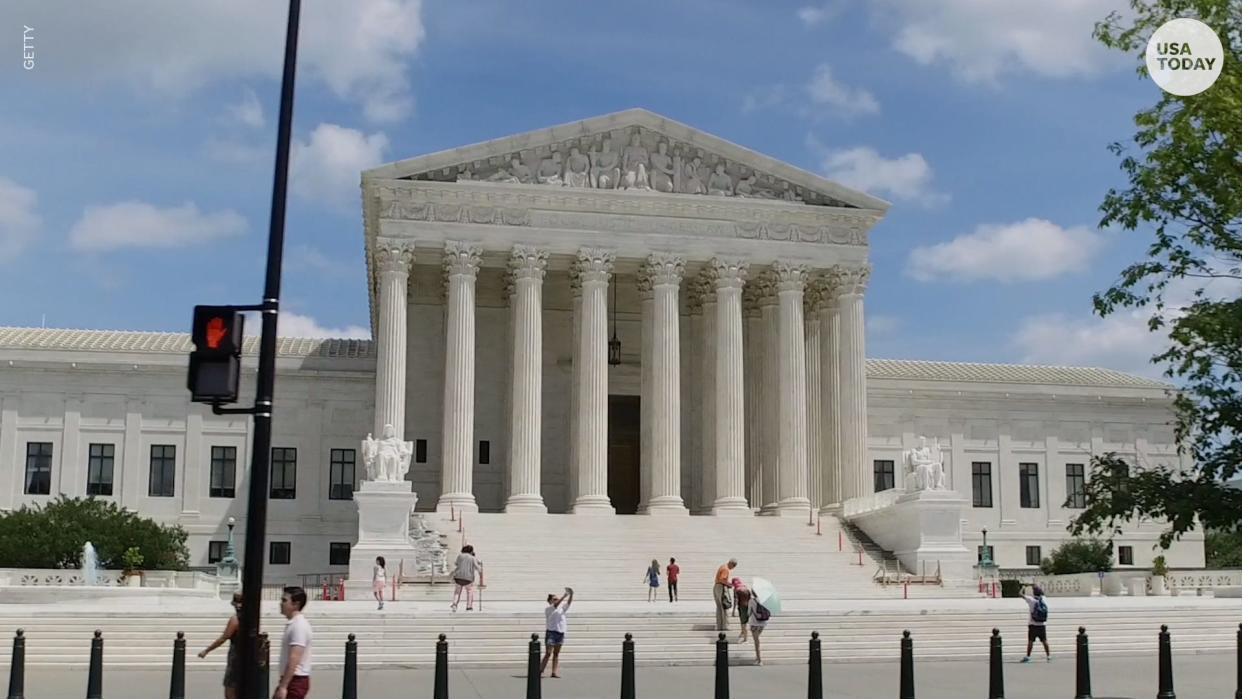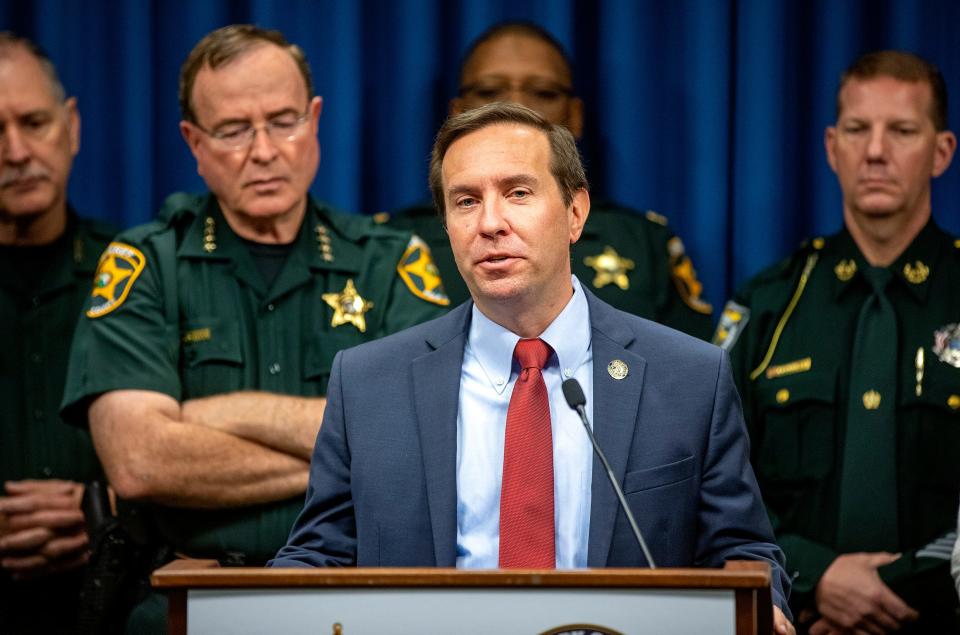US Supreme Court has consistently sided against banning books

WASHINGTON, D.C. — The U.S. Supreme Court has stood fast against prohibiting free speech at schools since 1969, extending that idea to the prohibition of banning books in 1982.
In 1969’s Tinker v. Des Moines Independent Community School District, the court ruled that neither students nor teachers "shed their constitutional rights to freedom of speech or expression at the schoolhouse gate."
In case you missed it: Conservative group trying to ban 16 books from Polk Schools, calling them pornographic
In 1982’s, Board of Education, Island Trees Union Free School District No. 26 v. Pico, a group challenged a local school board's removal from the school library of 11 books, including Kurt Vonnegut’s “Slaughterhouse Five,” “Best Short Stories by Negro Writers,” edited by Langston Hughes, and “Go Ask Alice” by an anonymous writer.
The School Board called the books "anti-American, anti-Christian, antiSem[i]tic, and just plain filthy."
Literature or pornography? National effort to label school library books as pornography takes root in Polk
Justice William Brennan wrote for the majority that "local school boards may not remove books from school library shelves simply because they dislike the ideas contained in those books and seek by their removal to ‘prescribe what shall be orthodox in politics, nationalism, religion, or other matters of opinion.’ Such purposes stand inescapably condemned by our precedents.”
Florida Citizens Alliance is pinning its argument to remove the books on State Statutes 847.001 and 847.012.
See the group's specific complaints here.
Pulled from shelves: Why Polk schools are treating these 16 books differently than a typical complaint
Invisible souls: Toni Morrison experts explain how her most wrenching work was important
Florida Constitution and state statutes
The group is pinning its arguments on the Florida Constitution and state statutes. They say books that include homosexual behavior violate Section 27 of the Florida Constitution:
Marriage defined - Inasmuch as marriage is the legal union of only one man and one woman as husband and wife, no other legal union is treated as marriage or the substantial equivalent thereof shall be valid or recognized.
(Editor's note: this was declared unconstitutional by the U.S. Supreme Court. It remains in the Florida Constitution.)
According to Florida State Statute 847.001, “obscene” is defined as material which:
“The average person, applying contemporary community standards, would find, taken as a whole, appeals to the prurient interest;
Depicts or describes, in a patently offensive way, sexual conduct as specifically defined herein; and,
Taken as a whole, lacks serious literary, artistic, political, or scientific value.”
Florida State Statute 847.012 forbids knowingly selling, renting, or loaning for money any obscene material that could be harmful to children, including:
“Any picture, photograph, drawing, sculpture, motion picture film, videocassette, or similar visual representation or image of a person or portion of the human body which depicts nudity or sexual conduct, sexual excitement, sexual battery, bestiality, or sadomasochistic abuse and which is harmful to minors; or,
"Any book, pamphlet, magazine, printed matter however reproduced, or sound recording that contains any matter (that is) explicit and detailed verbal descriptions or narrative accounts of sexual excitement, or sexual conduct and that is harmful to minors.”
"In addition, adults “may not knowingly distribute to a minor on school property, or post on school property, any material that is harmful to children."
But that statute very clearly states that educational materials are exempt.
“This subsection does not apply to the distribution or posting of school-approved instructional materials that by design serve as a major tool for assisting in the instruction of a subject or course by school officers, instructional personnel, administrative personnel, school volunteers, educational support employees, or managers,” the statute reads.
Violating these statutes is a third-degree felony.
“The several sheriffs and state attorneys shall vigorously enforce this section within their respective jurisdictions,” the statute reads.
Polk County Sheriff Judd said he has met with CCDF-USA officials, just as he would meet with any concerned person on any topic.
"I met with representatives from CCDF that told me of their concern about the obscene nature of book publications in the library that were accessible to children,” said Judd, who has worked throughout his career to rid Polk County of strip clubs and sex shops that sell pornographic material. He also routinely arrests people who solicit undercover deputies pretending to be minors. “And they left me material to review and I directed them to the superintendent and the school board to address the issue.”

As part of Judd's regular meetings with State Attorney Brian Haas, the pair have discussed the issue.
“The Polk County School Board has a process for this issue and that process needs to run its course,” said Jacob Orr, the spokesman for the State Attorney’s Office. “As always, no decision should be made until all information is known and the appropriate laws are applied.”
Ledger reporter Kimberly C. Moore can be reached at kmoore@theledger.com or 863-802-7514. Follow her on Twitter at @KMooreTheLedger.
This article originally appeared on The Ledger: How does Florida law live with U.S. Supreme Court precedent?

